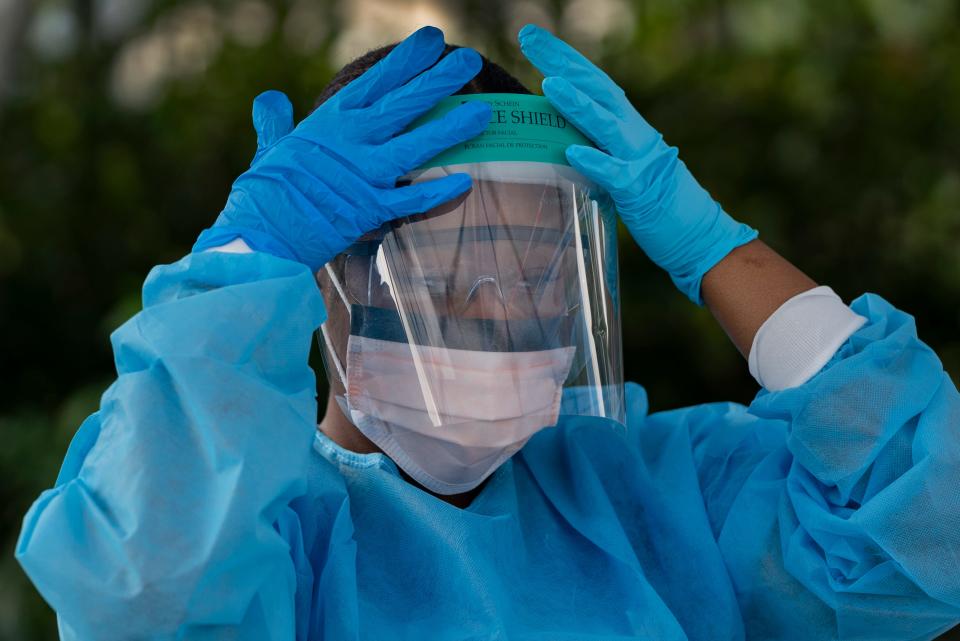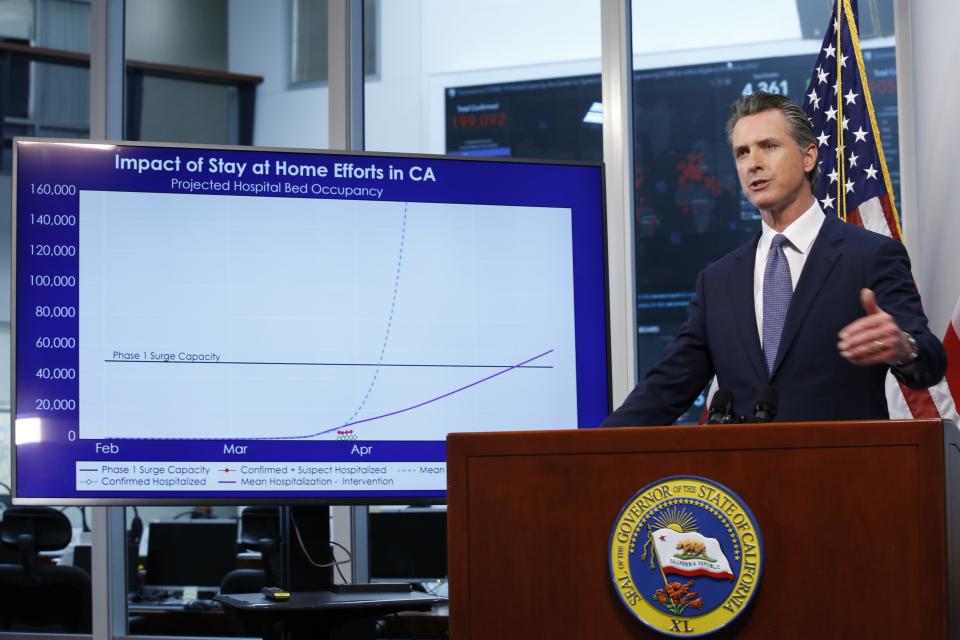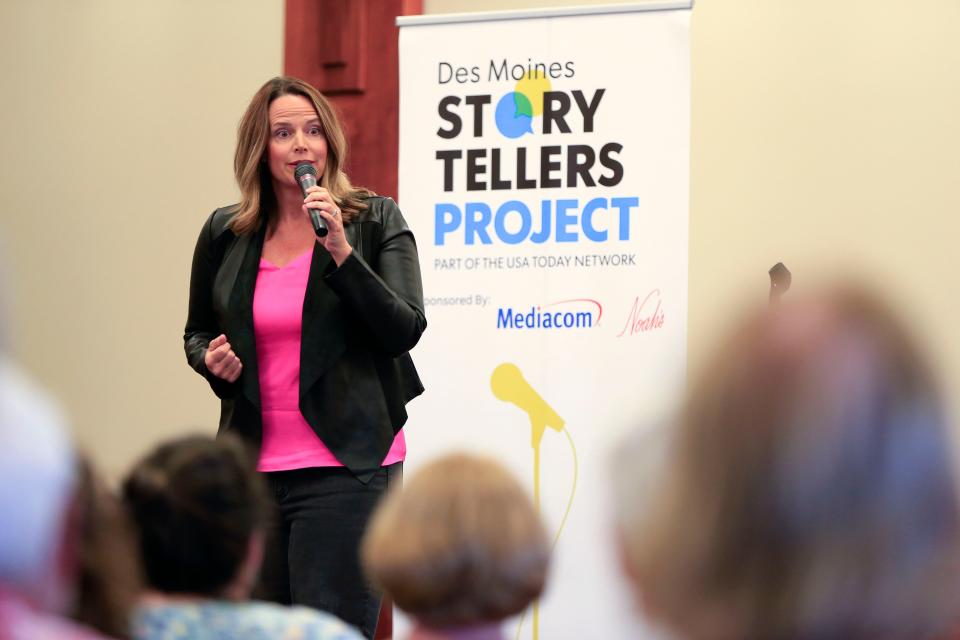In California: Newsom offers new plans to contain consequences of coronavirus
Gabrielle Canon here, filling in for Arlene Martinez. Here's what's happening outside your house today.
But first, Thursday's COVID-19 numbers showed a continued surge, both in the United States and around the world. The pandemic passed a bleak milestone, officially registering more than 1 million confirmed cases of the deadly disease that spread across borders and to every continent in only 5 months.
Health officials know the numbers reported are conservative — vastly inadequate numbers of tests have been done so the real number is likely much higher.

"The million (cases) is clearly way under what the actual number will be because of all the issues of testing and all the people with mild symptoms that haven’t been tested," Dr. Steven Corwin, president and CEO of NewYork-Presbyterian Hospital told USA Today.
In California brings you stories and information from newsrooms across the USA TODAY Network and beyond to keep you safe and informed. Subscribe today for free delivery right to your inbox.
Newsom offers more $$ help as unemployment surges
California has seen a sharp but expected uptick in unemployment since Gov. Gavin Newsom issued shelter-in-place orders three weeks ago — and nearly 2 million people are now missing work.
Nearly half of all private sector employees in the state work for small businesses or themselves, adding a new precarious dimension to the disaster. Acknowledging the profound economic consequences of the policies needed to slow the spread of COVID-19, the governor announced that for small businesses, $50,000 in owed sales taxes can now be deferred for up to a year while they wait for federal funds.
“We need to be able to get the federal dollars into the state of California, which means we need to get people to apply for these federal supports that were recently announced," he said, pointing the business community to several opportunities, including the Paycheck Protection Program under the CARES Act, the federal stimulus package.

Newsom also signed an executive order Thursday that aims to keep the water on in homes and small businesses during the crisis. The order builds on the voluntary moves more than 100 public and private water systems across the state made to suspend shutoffs for those facing financial hardship caused by COVID-19.
“Water is critical to our very lives, and in this time, it is critically important that it is available for everyone,” Newsom said in a statement.
ICYMI, we published a story on the coming recession and how ready California will be to weather the rough road ahead.
Read more about what the state is doing to support small businesses here, and all the actions taken by the governor to combat the coronavirus here.
New 'Health Corps' brings hope to California
This week, the governor announced a new plan to increase capacity in the state's health system and prepare for the coming surge of critical coronavirus patients. The newly unveiled healthcorps.ca.gov website, intended to boost hospital bed space by 40% by recruiting retired workers and students to step up, has already had more than 70,000 applicants.
The editorial board at The Desert Sun weighed in on the novel idea championing the governor for coming up with a creative and badly needed solution.
"We’re elated to see that innovative thinking like this — as common sense as it might seem — is still possible in a time when the inertia of bureaucratic morass, frequently driven by self-interest, too often bogs down good ideas," they write, calling for innovative approaches to continue as the crisis unfolds.
Should you wear a mask when you venture out?—It's complicated
We've heard for weeks now that surgical masks (still in short supply) or other face coverings aren't necessary when you leave your home to buy groceries or perform other essential errands, and that they should be saved for those who are sick or who are caring for people who are.
Now some agencies are saying they could play an important role in curtailing coronavirus spread.
The California Department of Public Health released a statement Wednesday night condoning cloth face coverings. Emphasizing that social distancing and hand washing are still the biggest game-changers when it comes to self-protection, the health officials write that covering your face in public "could reduce the transmission of COVID-19 by individuals who do not have symptoms and may reinforce physical distancing."
That doesn't mean you stockpile masks or rush out to buy them. Protective equipment is still in short supply and it's much more crucial to health care workers and others on the front line fighting this pandemic, so some health officials are now recommending civilians make their own.
Here's more on these recommendations and others, from Shasta County Health Officer Dr. Karen Ramstrom.
Tips to keep your spirits up while you #stayhome
Stuck trying to homeschool your kids? Here's how some teachers are going virtual.
A robot named Boris is here to help you cope and curb coronavirus anxiety.

For those lamenting baseball season's Opening Day delays, try these 10 great baseball movies to get you through.
If baseball isn't your jam, at least we've also got a list of screwball comedies to turn to.
At the very least, spend a moment cheering for perhaps the world's greatest basketball star (not to mention social distancing star)
Stay safe and informed with news from one of the country's most dynamic places. Subscribe to the In California newsletter today.
Family really is everything. Listen on
The Storytellers Project started in 2011, when Arizona Republic's Megan Finnerty decided to put on a night of live stories in Phoenix. The evening was so popular that nearly a decade later, some two dozen properties across the USA TODAY Network — including the Ventura County Star and The Desert Sun — host events of their own.
The coronavirus canceled several live shows but the Storytellers Project team has put together playlists to listen while you're home. Each Thursday, In California is featuring one here.
Week 3 is about family. Enjoy.

The best-laid plans
At 34, Veda Morgan realizes that she wants to have a child of her own, after marrying a man with a daughter and becoming a stepmom. Her husband's not so sure because his daughter is nearly ready to leave the nest. But he knows it's important to Veda.
A journalist, Veda researches everything about pregnancy and childbirth and plans on the perfect birth. As you might imagine, that's not what happened. Now years later and her son a teenager, Veda has learned to stop worrying so much and have a little faith.
VIDEO: Watch Veda Morgan share her story.

The family next door
Growing up without a father, Colleen Kelly Powell thought the older couple living next door was just that. But then she discovers they are actually her grandparents. Years later, a DNA test reveals a biological brother is living miles away.
VIDEO: Colleen Kelly Powell shares her story.

Sharing blessings through family
Amy Carney has a full life and a strong faith and she feels moved to foster a child. But the child she is given has severe behavioral issues that are traumatizing to her other children, so the boy is turned over to a mental hospital.
Amy feels like a failure, but is moved by faith to try again.
AUDIO: Listen to Amy Carney's story.
Love can get us through anything
Ashton Skinner grew up as half a set of twin girls, and in her teens came out as a lesbian. But a few years later, Ashton shares he is transgender. His dad, Dennis, relates how he and his wife, and their other children navigate this, talking about their fears, consequences and ultimately acceptance and happiness.
AUDIO: Listen as Ashton Skinner shares his story.
Everyone is welcomed at the table
Dennis Cornell announces that he's gay, divorcing his wife and about to be a dad for the second time, all at dinner. His family rejects his new boyfriend and his new vlease on life.
Soon, he gets a job as a psychotherapist at a VA Hospital, where he created the first LGBTQ health-care program for the VA in the region and helps soldiers manage their emotions after "Don't Ask, Don't Tell" is repealed.
As the veterans begin to come around and heal, so do the relationships in his family.
VIDEO: Watch as Dennis Cornell tells his story.

Reunited and it feels so good
Anita Rufus recounts the story of becoming pregnant more than 60 years ago at age 17 and being thrown out of her house. She put her son up for adoption and later went on to marry and start a family. She had decided she'd never look for her son, but she did tell the agency how to find her, should he look.
After 46 years, Anita's son looks for her, meets her and his two siblings. After Anita gives him photos of her family, he scans himself into them to see what they would've looked like as a family. They stay in touch today.
VIDEO: Watch Anita Rufus share her story.
In California is a roundup of news from across USA TODAY Network newsrooms.
This article originally appeared on USA TODAY: Coronavirus, Newsom, economic plan, health corps, California

